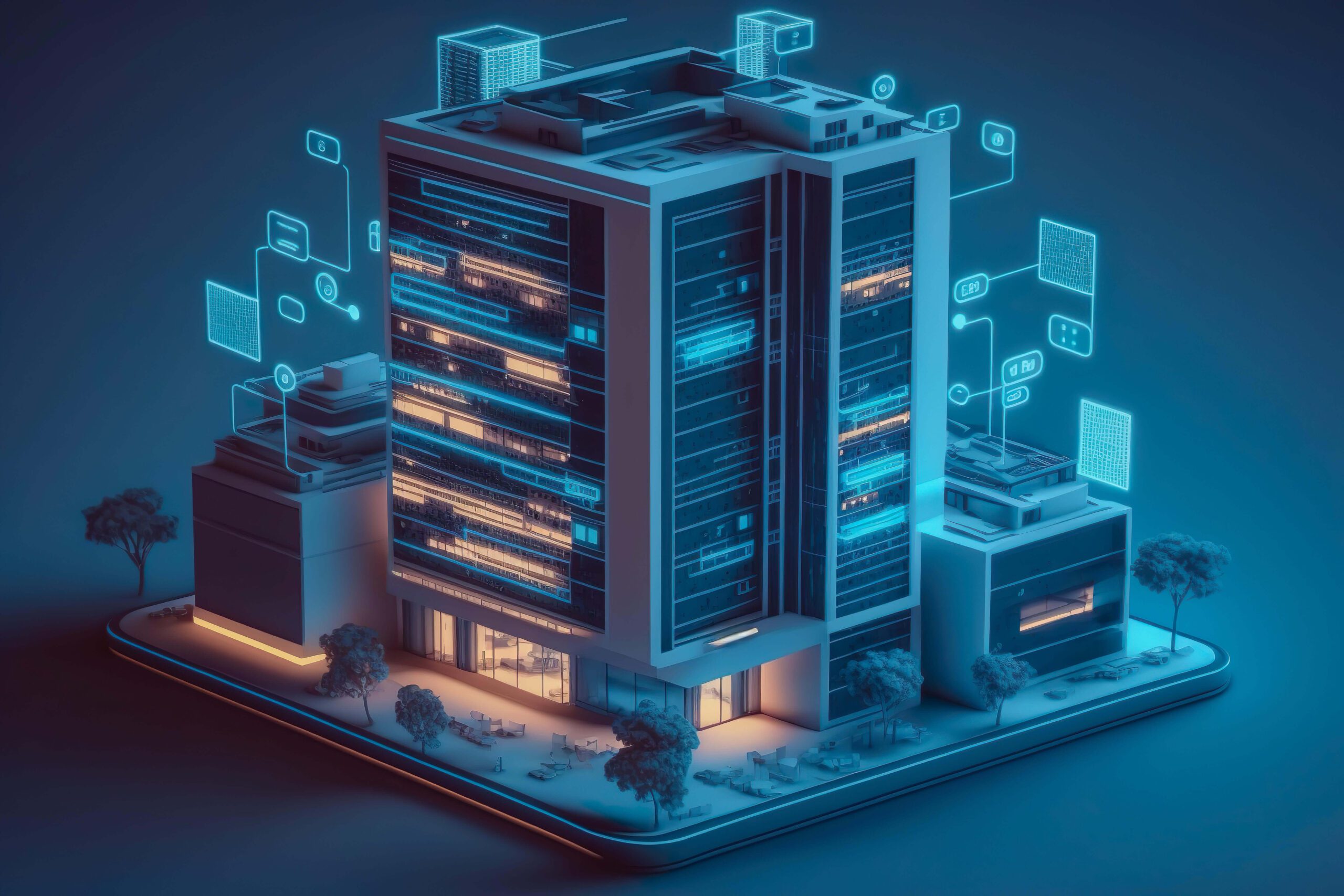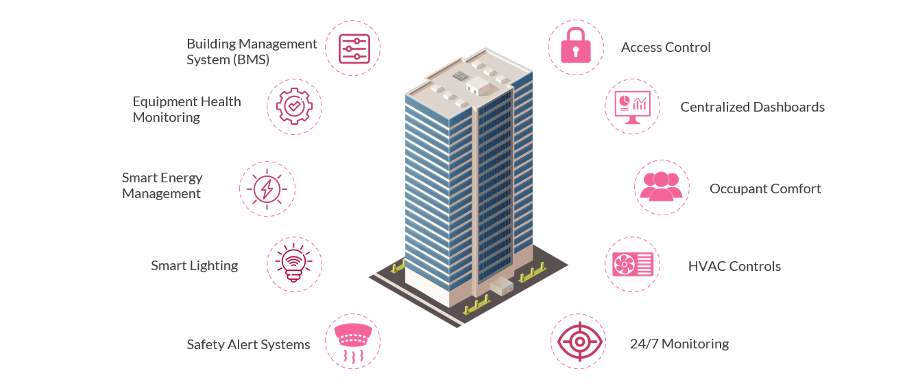 Ultimate Guide.webp)
The Rise of Proptech: How Technology is Transforming Property Management
Proptech is revolutionizing property management with AI, IoT, and big data.The Rise of Proptech: How Technology is Transforming Property Management
Picture this: It's 2 AM, and Sarah, a property manager, is jolted awake by an urgent call about a burst pipe in one of her buildings. As she scrambles to address the crisis, she can't help but wonder if there's a better way to manage properties in the 21st century. Enter Proptech – the game-changing fusion of property and technology that's transforming the real estate industry as we know it.
As someone who's spent over a decade in property management and witnessed the Proptech revolution firsthand, I can tell you that we're living in exciting times. Gone are the days of clipboards, endless paperwork, and reactive maintenance. Today's property management is all about smart buildings, predictive analytics, and seamless digital experiences. Let me take you on a journey through the fascinating world of Proptech and how it's reshaping our industry.

What is Proptech, Anyway?
Proptech, short for Property Technology, is the umbrella term for the wave of technological innovations sweeping through the real estate sector. It encompasses everything from AI-powered management systems to IoT-enabled smart buildings. In essence, it's about leveraging cutting-edge tech to make property-related processes more efficient, data-driven, and user-friendly.
The evolution of Proptech has been nothing short of remarkable. When I started in this field, "high-tech" meant having a computerized tenant database. Now, we're talking about buildings that can think for themselves and virtual reality property tours. It's like we've jumped from the Stone Age to the Space Age in just a few years!
AI: The New Superintendent
Artificial Intelligence is revolutionizing property management in ways that would have seemed like science fiction not too long ago. Take predictive maintenance, for instance. AI algorithms can now analyze data from various sources to predict when equipment is likely to fail, allowing us to address issues before they become major problems[1].
In my experience, implementing AI-powered predictive maintenance can reduce unexpected breakdowns by up to 70%. It's like having a super-intelligent building superintendent who never sleeps and always knows what's going on.
But AI's role doesn't stop there. Chatbots are transforming tenant communication, handling routine inquiries 24/7 with a level of efficiency that would make any human receptionist jealous. I recently implemented an AI chatbot in one of our properties, and within a month, it was handling over 60% of tenant queries, freeing up our staff to focus on more complex issues[2].
AI is also playing a crucial role in optimizing energy usage. By analyzing patterns in occupancy, weather data, and historical energy consumption, AI systems can adjust heating, cooling, and lighting in real-time. In one of our office buildings, we saw a 25% reduction in energy costs within the first year of implementing an AI-driven energy management system[3].
IoT: Making Buildings Smarter Than Ever
If AI is the brain of modern property management, the Internet of Things (IoT) is its nervous system. IoT devices are transforming buildings from passive structures into active, responsive environments.
Smart building systems now allow us to control everything from temperature to access control with a few taps on a smartphone. I remember the first time I adjusted the climate settings in a 50-story office tower from my living room couch – it felt like I was living in the future!
IoT sensors are also revolutionizing how we monitor property conditions. From water leak detectors to air quality monitors, these devices provide real-time data that helps us maintain optimal living and working conditions. In one residential complex, we installed IoT water sensors that detected a minor leak before it became a major flood, saving an estimated $100,000 in potential damage[4].

Big Data: The New Real Estate Currency
In today's property management landscape, data is king. Advanced analytics are helping us make more informed decisions about everything from pricing strategies to market trends.
For example, by analyzing data on local rental rates, economic indicators, and property features, we can now set optimal rental prices with a level of precision that was unimaginable just a few years ago. In one portfolio I managed, implementing data-driven pricing led to a 15% increase in rental income within six months[5].
Cloud-Based Solutions: Property Management in Your Pocket
Cloud-based property management software has been a game-changer for our industry. It's like having your entire office in your pocket, accessible from anywhere at any time.
The benefits go beyond just convenience. Cloud solutions facilitate better collaboration, streamline workflows, and provide real-time updates to all stakeholders. I've seen maintenance request response times cut in half after implementing a cloud-based system, leading to happier tenants and fewer headaches for staff[6].
VR and AR: The New Open House
Virtual and Augmented Reality are transforming how we showcase properties and conduct maintenance. Virtual property tours have become increasingly popular, especially in the wake of the COVID-19 pandemic. I've seen properties leased sight-unseen based solely on VR tours – something I never thought I'd witness in my career!
AR is also making waves in maintenance and repairs. Imagine being able to see the exact location of a pipe behind a wall or getting step-by-step repair instructions overlaid on the equipment you're working on. It's like having an expert looking over your shoulder at all times[7].
Blockchain: Trust in the Digital Age
While still in its early stages, blockchain technology holds immense potential for property management. The idea of using smart contracts for lease agreements, for instance, could revolutionize how we handle transactions, making them more secure and transparent[8].
Challenges and Concerns
Of course, with great power comes great responsibility. As we embrace these new technologies, we must also grapple with issues like data privacy and security. There's also the learning curve and implementation costs to consider. And yes, there are concerns about job displacement – though in my experience, technology tends to shift roles rather than eliminate them entirely.
The Future is Proptech
As we look to the future, it's clear that Proptech will continue to evolve and reshape our industry. From AI-powered property valuation to drone-based inspections, the possibilities are endless.
In conclusion, Proptech is not just changing how we manage properties – it's fundamentally altering our relationship with the built environment. As a property manager who's ridden this technological wave, I can say with confidence that we're just at the beginning of an exciting journey. The buildings of tomorrow won't just be structures – they'll be intelligent, responsive environments that adapt to our needs in real-time.
So, the next time you walk into a building, remember – you're not just entering a space, you're stepping into the future of real estate. And trust me, it's a future that's brighter, more efficient, and more exciting than we ever imagined.
References
- https://sloboda-studio.com/blog/real-estate-trends/
- https://vendoroo.ai/post/ai-in-property-management-the-future-is-now-are-you-ready
- https://aijourn.com/how-to-use-ai-in-property-management/
- https://www.linkedin.com/pulse/proptech-future-property-management-real-estate-investors-david-arpel
- https://www.realpha.com/blog/proptech-adoption-challenges
- https://naecleaningsolutions.com/ai-in-property-management/
- https://proprli.com/knowledge-center/top-proptech-trends-2024-transforming-the-future-of-real-estate-maintenance/
- https://solveit.dev/blog/what-is-proptech-in-real-estate
- https://wint.ai/glossary/proptech/
- https://www.beyondwalls.com/blog/proptech-challenges-opportunities
- https://proptechos.com/case-studies/
Adaptive Reuse: Breathing New Life into Old Buildings






Comments
No comments yet. Be the first to comment!
Leave a Comment